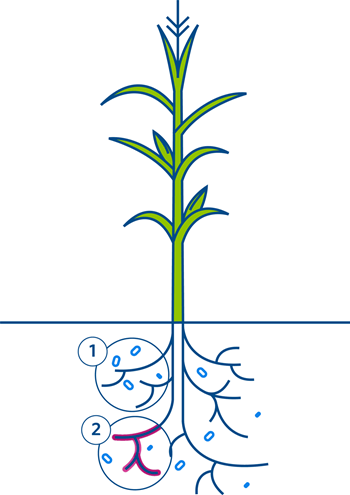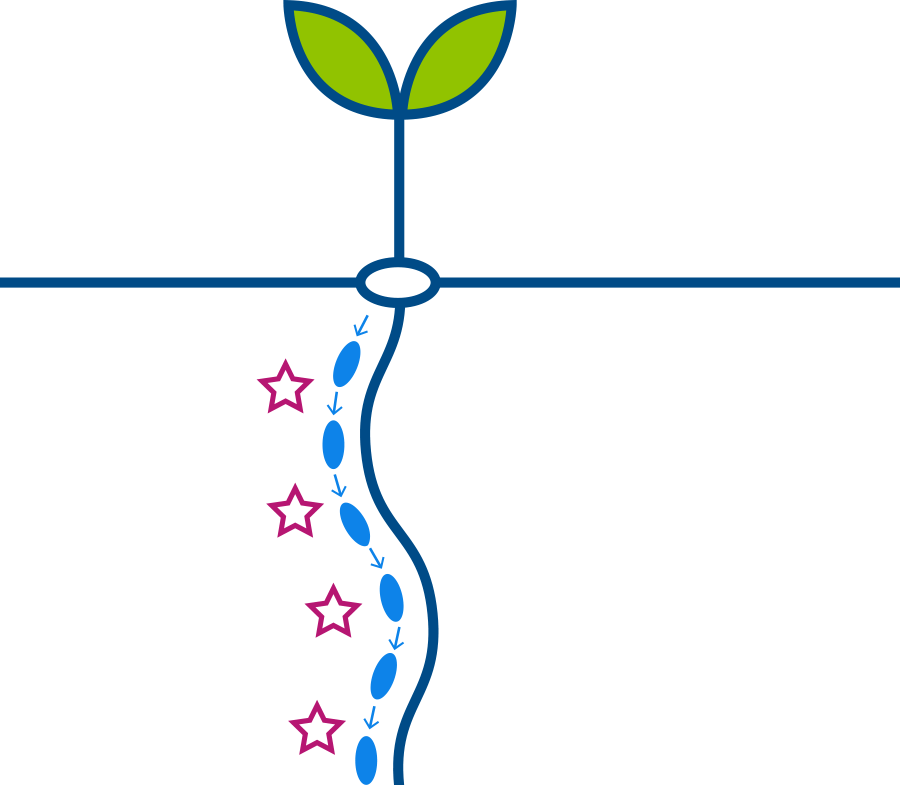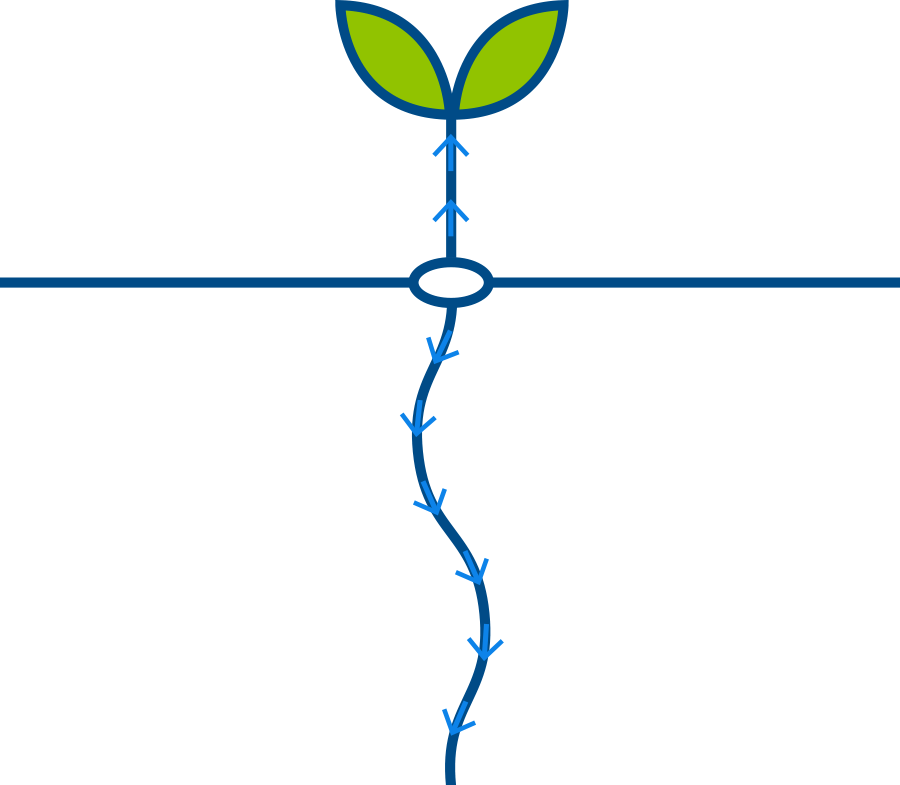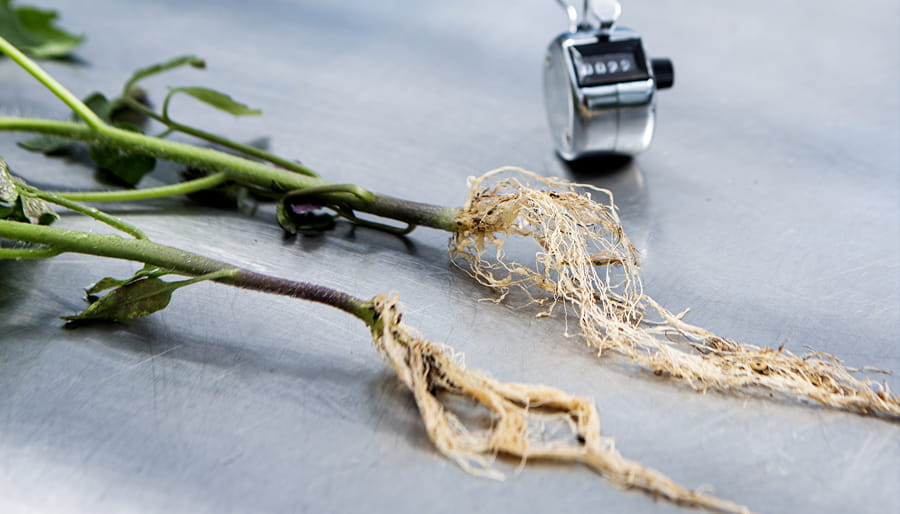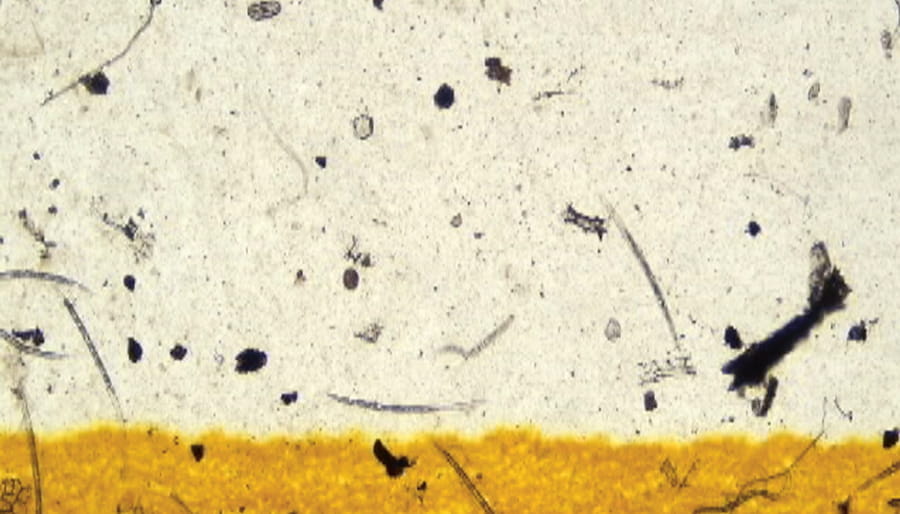Chr. Hansen has vast experience in developing and improving bacterial strains. In Plant Health this provides us with a unique understanding of how bacteria work and interact with plants.
A handful of soil contains millions of microbes. These microbes break down food, provide a plant with access to nutrients and defend it from harmful invaders.
The microbes live in and on the plants, roots and soil and aid them with the benefits of increased root development and uptake of water and nutrients, as well as disease protection and resilience against frost and drought.
How we do it
We are one of the few bioscience companies able to breed bacteria – allowing us to identify and improve each strain and the way they colonize the plant host and fight specific plant stresses.
We carefully select strains based on their ability to thrive and interact effectively with their environment, and how they can directly combat microbial plant pathogenic diseases as well as stimulate the physiology of the crop for increased health and robustness.
Once we have selected the strains, they are tested through mechanistic greenhouse trials and extensive field trials. Specific formulations that allow the bacteria to reach their maximum potential are then developed from these strains before being turned into products.
Why bacteria?
Bacteria have unique features that make them ideal for agriculture. At Plant Health we utilize the bacillus bacteria, which as a natural part of the plant microbiome, helps protect plants against disease and pests as well as protecting roots against nematode attack.

